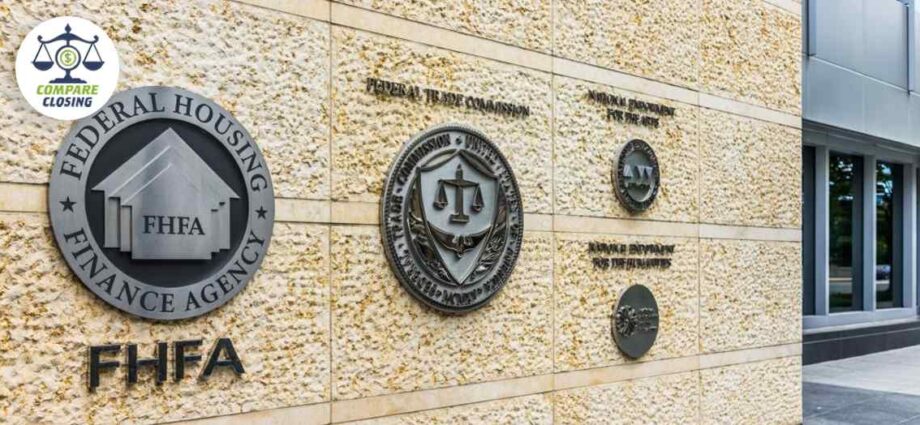Warning: Undefined variable $custom_content in /home4/comcompare/public_html/mortgagenews/wp-content/plugins/code-snippets/php/snippet-ops.php(582) : eval()'d code on line 7
Last updated on February 3rd, 2021 at 10:10 am
Fannie and Freddie plan to charge lenders an extra 0.5% on most purchases of refinanced loans.
Mortgage experts say this comes with an unexpected price for lenders.
Lenders face the prospect of millions of dollars in lower profits, and potentially losses, for an extended period because the fee will be collected on loans in which interest rates already have been locked in and cannot be adjusted.
Now Banks, mortgage lenders, and mortgage broker would end up paying hundreds of millions of dollars on refinanced loans whose fixed rates have already been locked in because Lenders typically lock in interest rates for 45 or 60 days to ensure a borrower gets a rate that does not change during the closing process, meaning the fee couldn’t be passed along to consumers for at least a month or two.
Federal Housing Finance Agency, which oversees Fannie and Freddie, has set these fees to and they will start collecting from 1st Sept.
Fannie said in a letter to lenders that it would be implementing the fee, in light of market and economic uncertainty resulting in higher risk and costs.” They did not give a reason for the fees.
Scott Buchta, head of fixed-income strategy at Brean Capital said, “The way they did this is very, very damaging to banks and other mortgage bankers and brokers who have loans in the pipeline, in the first month, the bulk of the fee will come out of the pockets of bankers and brokers that locked in a lot of loans.”
Larry Platt, a partner at Mayer Brown, said the fee made little sense because borrowers who refinance are less of a risk to Fannie or Freddie since their monthly mortgage payment typically drops by several hundred dollars.
he said “It definitely has an adverse effect on the industry, particularly lenders that have already made commitments … they’re going to lose a lot of money on this, the general consensus is that the fee is a pretext designed to skim off the top to increase the capital of the GSEs.”
According to the Mortgage Bankers Association, this adverse fee will cost originators an additional $1,400 or so for a $280,000 loan.
The fee is likely to reduce profits for mortgage lenders given that the net profit per loan in the first quarter was $1,600.
On one side is the historical low-interest rates which has caused a rush in people for refinancing enabling retail loan officers to earn an average of $24,200 a month in commissions.
After the 1st month, the fees would e passed on to the borrowers in the form of a slightly higher interest rate, likely an eighth of a percentage point.
That would mean borrowers would be paying more than the $1,400 fee over the life of the loan.
Ron Haynie, senior vice president of mortgage finance policy at the Independent Community Bankers of America said, ”Instead of listing the half-point fee on a disclosure statement, they will raise the rate to cover the fee, and borrowers will pay for it over time, if you raise the rate, you’re raising the payment amount, so it impacts the borrower’s monthly cash flow. There is a cost and borrowers will notice it.”
Robert Broeksmit, the MBA’s chief executive, feels, at a time when the Federal Reserve is purchasing $40 billion in agency MBS per month to help reduce financing costs for mortgage borrowers to support the broader economy, this action raises those costs and undermines the Federal Reserve’s policy.
Neither is it good for the homeowners or the recovery of the economy.
The MBA is urging the FHFA to withdraw the fee. This fee comes at a time when home mortgage delinquencies are on a rise and the economic fallout from the coronavirus pandemic remains uncertain.
In a letter to FHFA Director Mark Calabria, Sen. Sherrod Brown of Ohio, the ranking Democrat on the Senate Banking Committee and 15 Senate Democrats asked to explain,
“This sudden additional charge will affect loans currently in the refinance process and could cause both confusion and increased costs for homeowners,” the letter states.
“The Enterprises and FHFA have offered no explanation for this change. We would, therefore, like to understand the Enterprises’ request, and FHFA’s approval, to raise costs on refinance transactions.”
All in all this news has not been taken lightly by many and Calabria needs to either take a step back or give an explanation to the sudden decision.
Reference Source: National Mortgage News


